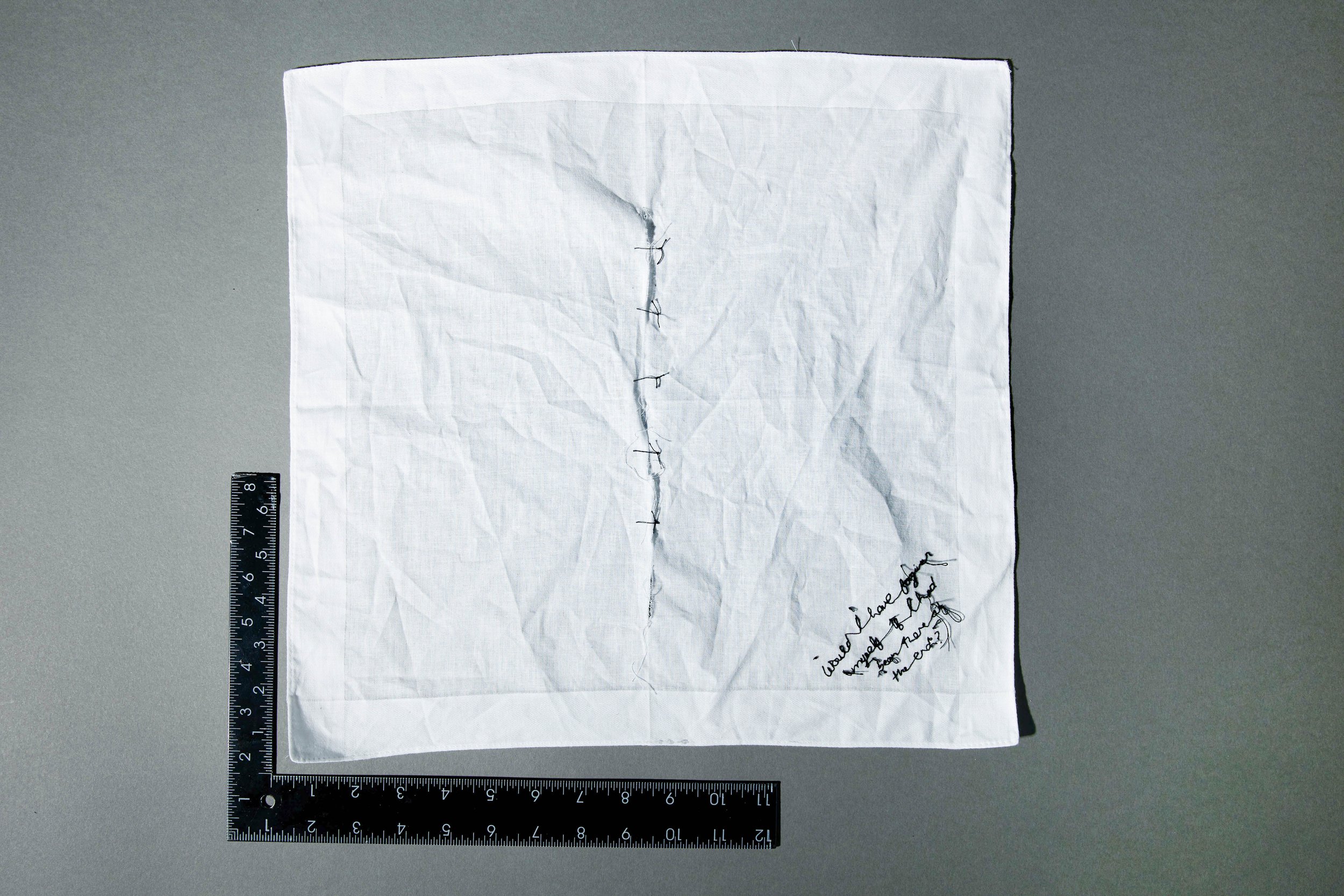6. Would I have forgiven myself if I had been there at the end?
Part 6 of the “Therapeutic” series of essays
“Would I have forgiven myself if I had been there at the end”, part of the Therapeutic series 2022, UV printed on foamex, 60cm x 90cm x 0.3cm
When my stepfather first became ill, we thought we would not have long together. They told us six months. That was ten years before he died. In that time the man I knew faded. It must have been a slow process, but it did not feel like it. Every stage of his decline had a new terror, a terror he dealt with first, often with anger and repulsion at the devices he and my mother collected to assist him. He rejected the loss of his independence and dignity, even at the expense of her exhaustion and the injuries she received trying to act as his legs, his arms, his back.
I became angry too. I could not hide it when I was with him. I could not understand his bull-headed resistance. His pride. I wanted her to have a better life than this.
When he died from Covid she held his hand through a hazmat suit on an infection ward. Although I lived many hours away, I could have made it there on time. I told her I couldn’t risk quarantining for three weeks when I needed to care for you. But there would have been ways; it was not an insurmountable hurdle. The truth is I was afraid he would see my anger. I was ashamed I could not let go of it in his final moments. Now, I cannot think of him without reflecting on my own cowardice, although he whispers in my dreams “there is no shame here”. If I had been kinder, braver at his end would I have forgiven myself for the years of frustration? Perhaps I would not be me at all.
Jerome Brüner wrote: “[The trouble with analysing the Self] can be attributed to the “essentialism” that has often marked the quest for its elucidation, as if Self were a substance or essence that pre-existed our effort to describe it, as if all one had to do was to inspect it in order to discover its nature…So what emerged as an alternative to the idea of a directly observable Self was the notion of a conceptual Self, self as a concept created by reflection, a concept constructed much as we construct other concepts…”
I photograph the handkerchiefs and marvel at the flattening of the image, at their conversion from a tactile medium to something distant, a veil passed between the viewer and their messy presence. I wonder what it means to try and understand why I am me – to pin my “Self” down and contain it. To categorise the elements of it. I think of the moment when this work passes from me to another, how I will lose control of it and all that it means to me. The contemporary definition for “stultitia” is “folly”…
Perhaps I am an archaeologist, digging for meaning, pulling it out of the mud and photographing it for posterity – cleaning it up and destroying its context in the process. Perhaps I am a forensic photographer, gathering evidence and capturing it for a jury to judge its truth, without contamination between the two.
I think I shall burn them, the handkerchiefs. But first I shall squash them into two dimensions, I shall mark their boundaries, I shall put a layer between them and you, like cling-film over a raw and bloody heart …or spleen. You do not need to touch them, and I do not want them to taint you.

